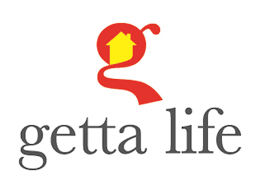Everyone needs meaningful relationships. Sue Deeley and Julie Smith tell the stories of two people that Getta Life has supported
Vicki Norton likes to be around children and talks easily with them. Four years ago, she went to help out at a stay and play group.
Staff have spoken about her contribution and how she has changed their thinking. Originally, they thought it would be something that only she would benefit from. Now, they recognise what she brings to the group. She has developed strong relationships with the children.
One boy who had always been lively and active became much calmer and talked with her through playing with playdough and Lego. When old enough for school, he invited her to his childminder’s home for a leaving party.
It was notable how many children and adults made a specific effort to find Norton and say goodbye at the end of sessions. Adults appreciated the opportunity for both their children and themselves to chat with a person with disability.
She became a part of the volunteer social group, attending coffee get-togethers and Christmas meals out.
Sheila Spicer has a wide circle of friends, all of whom met through her and are now deeply connected. These loving friendships have transformed how she sees herself – is perceived by others.
Spicer was sent to live in an institution when she was two years old. She left almost 50 years later. When we first met her, she sat with her head down, rocking, often crying and obviously very sad.
There was no one in her life who had not been paid to be there.
Slowly, things began to shift – having her own home, shared with two people she chose, gave her certainty. Support from a small, consistent team of people who wanted to know her helped her to trust.
Spicer began to show us herself. She is warm, funny, dignified and very gentle. She began reaching out.
We began to think about how we could help her to become known outside her staff team. Two people were asked if they would like to get to know her and the first two friendships in her life were formed. With support, she hosted lunches. The friends went out for afternoon tea, visited the theatre and shared birthday and Christmas celebrations.
While Spicer showed her appreciation of her new friends through gestures and smiles, the friends started to talk about what she was offering them – such as a chance to get together to share experiences and hang out over good food.
New people joined the circle and she now has at least six friends. They keep in touch individually and meet as a group. The times when they meet up are remarkable – there is so much love, great stories, lots of fun and deep concern for each other. Spicer supports her friends. She has her own car and helps them to go shopping and attend hospital appointments, and travels to see one friend who has moved away.
Below are comments by her friends:
“I am so proud to know Sheila – my life has changed completely. I have made a whole new group of friends from knowing her.”
“If you had told me I would be friends with someone who didn’t talk, I would say ‘how?’ as I talk a lot. However, Sheila has a lot to say and I get a lot from being Sheila’s friend.”
“It’s the friendship that matters most.”
Staff help Spicer plan how to meet her friends and keep in touch with each other. Their role is to support her to be a friend – not to make friendships for her.
Sue Deeley and Julie Smith are founders and directors of Getta Life
Getta Life believes that people with severe learning disabilities should be able to live their lives in their own homes with support to realise their dreams.
This small Coventry-based organisation’s work is built on the principle that everyone needs meaningful relationships, everyone can say what they want if people hear them and inclusion in all parts of society is everyone’s right.
Finding our role and our contribution to the world is a big part of how we discover who we are. For people who need support, the importance of this is often overlooked. To change this, we need to ask: what are their gifts? What brings out the best in a person? And how do we help someone gain more experiences that draw on these?
Working with people’s gifts, supporting them to find their purpose and build and nurture relationships is a conscious part of our work. Support staff must think deeply about those they support, and their role in developing a culture of community and belonging. www.gettalifeonline.co.uk

